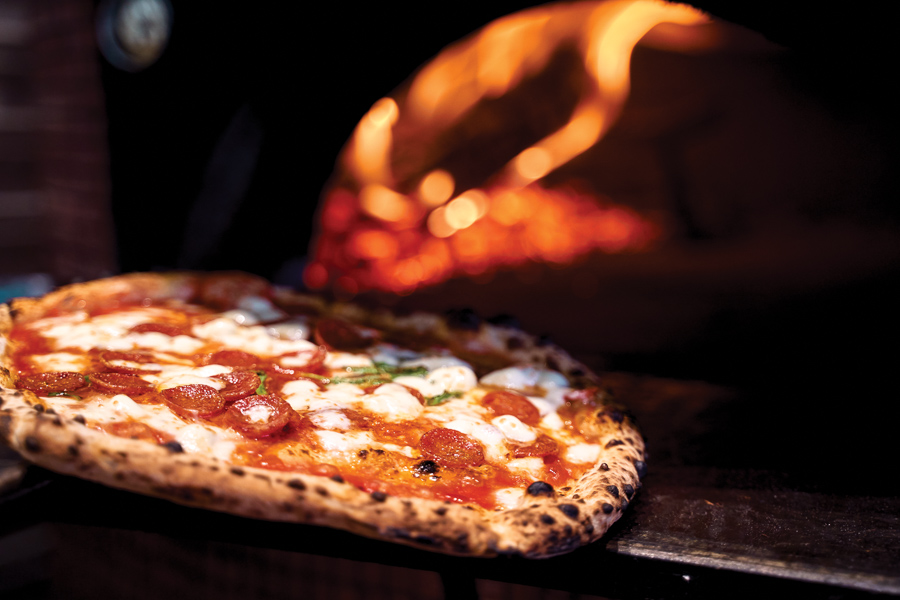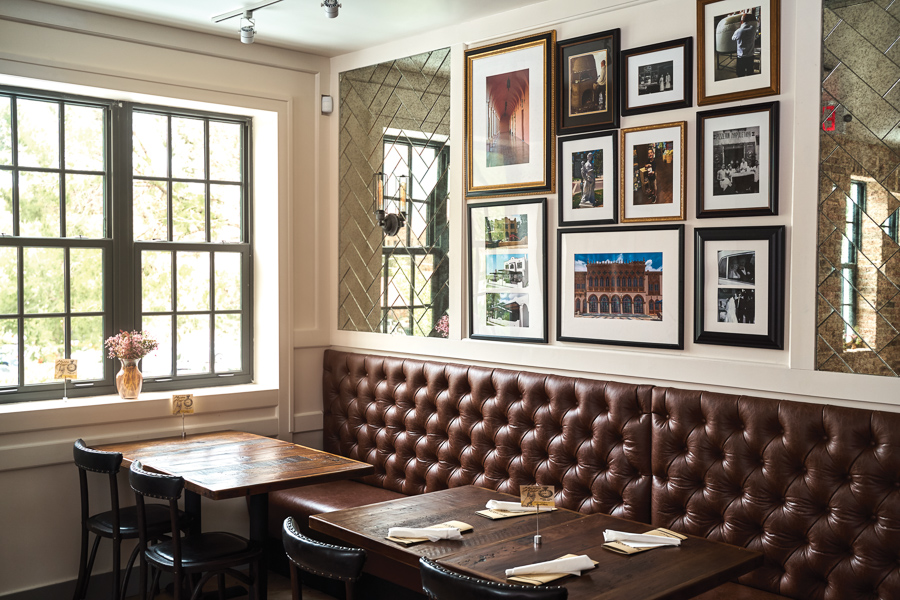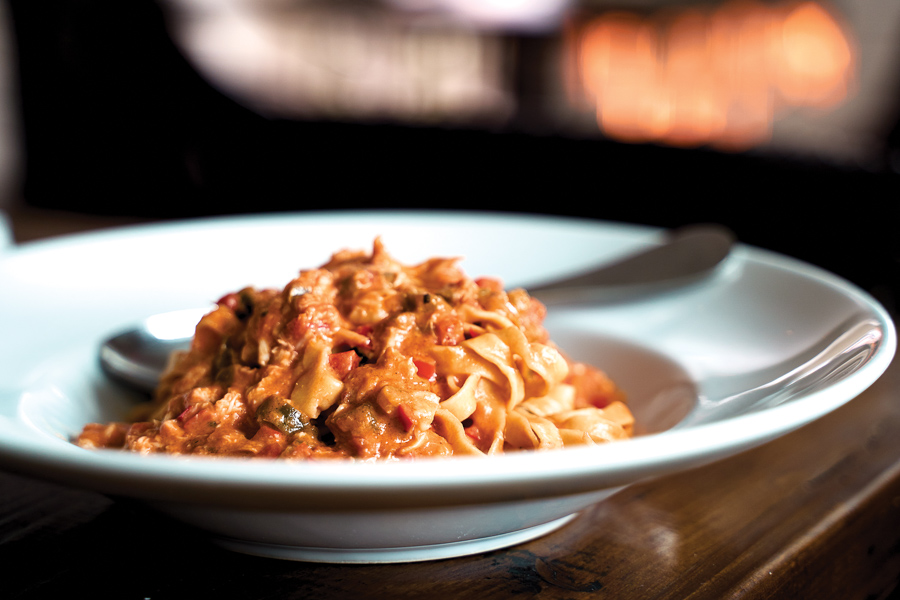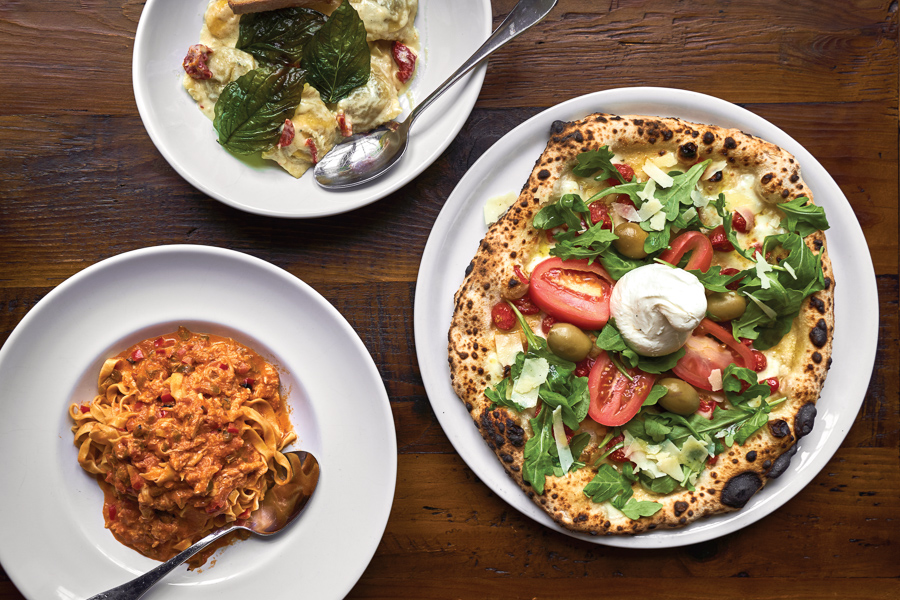In Naples, Italy, two types of people walk the streets with an air that elicits reverence bordering on fear: mafiosos and pizzaiolos. “In Naples you’re either in the mafia or you make pizza,” says Dan Bavaro, who became the Tampa Bay region’s Made Man of Pizza in 2009 after a trip to Southern Italy that was equal parts ancestral pilgrimage and business research expedition—except where mafiosos use threats of violence against people to attain their status, pizzaiolos threaten violence against San Marzano tomatoes, mozzarella or fior di latte cheese, and leavened dough. But more important than dubious observations or tawdry trinkets, Bavaro brought back from his travels a pair of classically trained pizzaiolos to teach him the codified art as proscribed by the Associazione Verace Pizza Napoletana, a cartel with the authority to consecrate a Neapolitan pizzeria. “One of the guys was 72 and I swear he was born in a pizza oven,” says Bavaro, and after six months of understudy and sweaty toil, Bavaro would become Boss of his own pizza operation. Now, with the opening of their sleek downtown Sarasota location at 27 Fletcher Avenue, the Bavaro family of restaurants adds an outpost to their territory, whose modern architectural sensibility belies the rich history of centuries-old methods from the Bel Paese.

PHOTO BY WYATT KOSTYGAN.
The doctrinaire observance of Associazione bylaws permeates every step of the pizza process. It begins with a low-hydration dough made from ultra-fine “00” flour and a 100-year-old yeast culture. Once the dough is risen (halleluiah!), it has become the clay from which the flaky, doughy crust is formed, a crust that can withstand the hellish heat of the traditional Neapolitan pizza oven. The oven itself looks as much like a stylized architectural feature as it does a primitive cooking hearth and was made to the Associazione’s exacting specifications. The inside floor of the oven is made from biscotto di Sorrento, a material made of volcanic clay prized for its heat conductivity, and along with special refractory bricks shaped into a dome, the oven becomes the 900-degree crucible through which only the most worthy pizzas may pass.

PHOTO BY WYATT KOSTYGAN.
The high cooking temperature allows for two noteworthy features of a Neapolitan pizza: a 90-second cook time and the juxtaposition of crispy charred bits on the cornicione (border) with gooey dough in the center. A 90-second cook time ensures that none of the toppings on a classic Margherita pizza become unrecognizable—the basil remains green, the cheese doesn’t bubble and burn and, if prosciutto, soppressata or Italian sausage are added in the case of Bavaro’s tre carne pizza, they don’t take on the texture of roasted rubber. No, these pies are delicate and fresh like a hot loaf of bread but with the comforting aromatics of garlic, oregano and basil. The consistency of the crust might be unfamiliar to an American pizza audience, but newcomers ought not fear, for a traditional Neapolitan pizza crust is meant to bend and droop like the outstretched arm of a ballet dancer and is often more easily consumed with a knife and fork (the pizza, not the dancer). “It took time to educate people in the beginning,” says Bavaro, with many early customers wary of a pizza pie that could not be thrown like a frisbee.

PHOTO BY WYATT KOSTYGAN.
Pizza aesthetics aside, the long arm of the Associazione has no authority to prohibit improvisation when it comes to salads, and, in the case of Bavaro’s, a deviation from tradition has yielded delicious results. For a paltry surcharge, Bavaro’s will take one of its humble salads and serve it on a freshly baked pizza crust. As if the Floridian salad wasn’t already a satisfying meal on its own, diners can opt for a warm, crispy bed of toasted pizza dough to help fill in the empty gastro-spaces a salad can sometimes leave behind. It features seared shrimp, mango-ginger wensleydale cheese and heirloom tomato tossed with house-made champagne vinaigrette and served atop a spring mix. The seared shrimp is savory and a bit smoky, pairing well with the tartness of the vinaigrette and the sweetness of the cheese. Think of the pizza crust base as a giant crouton that won’t chip a tooth.
And though pizza rightfully accounts for the bulk of the Bavaro’s menu, no restaurant that boasts genuine Italian cuisine can survive without at least a small offering of pasta. The pastas are not flashy but are cooked perfectly al dente and tossed in any one of the familiar sauces—Pomodoro, arrabbiata, pesto or, for Italian-Americans, marinara. The house-made ravioli al funghi, stuffed with roasted mushroom and asiago cheese then tossed in a gorgonzola cream sauce, has the recognizable taste of a classic. A garnish of fried basil adds some color, a hint of crunch and a bit of aromatics to an otherwise rich, savory dish. SRQ
Bavaro’s Pizza Napoletana & Pastaria, 27 Fletcher Ave., Sarasota, www.bavarospizza.com, 941-552-9131











